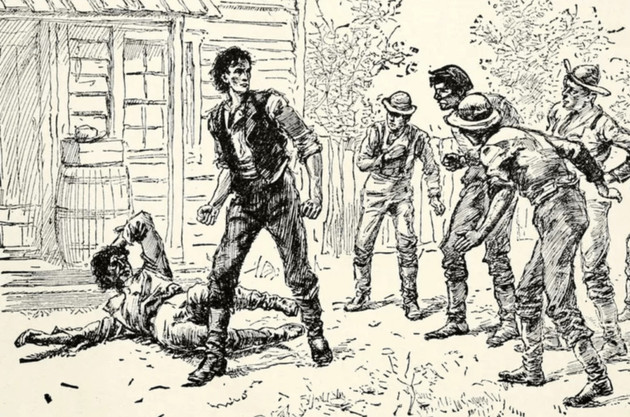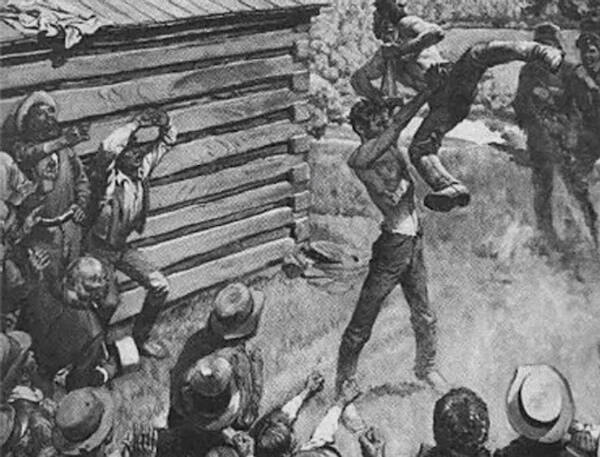Abraham Lincoln, trash-talking wrestler
My book talks about Abraham Lincoln a lot. I’m not sure how I’ll use the following information about his wrestling career when younger, but everyone should know he said ““I’m the big buck of this lick. If any of you want to try it, come on and whet your horns!” on the way to passing the Thirteenth Amendment.
From Inside Abraham Lincoln’s Surprising Career As A National Wrestling Champ and Abraham Lincoln Excelled in Wrestling—What Other Sports Did He Play?.
Before fighting Armstrong, Lincoln had reportedly already wrestled around 300 people. The young 185-pounder eventually won Sangamon County’s wrestling championship. One bout saw Lincoln so embroiled that, after he defeated his opponent, he screamed at the crowd:
“I’m the big buck of this lick. If any of you want to try it, come on and whet your horns!”
“After this wresting match Jack Armstrong and his crowd became the warmest friends and staunchest supporters of Mr. Lincoln,” recalled New Salem resident Robert B. Rutledge.

“He was a proud competitor but a humble sportsman,” David Fleming wrote of the 6-foot-4, 180-pound hard man. “And when his wrestling skills diminished, Lincoln’s leadership qualities emerged.”
“We can only find one recorded defeat of Lincoln in 12 years,” said Bob Dellinger, director emeritus of the National Wrestling Hall of Fame in Stillwater, Oklahoma. “He was undoubtedly the roughest and toughest of all the wrestling presidents.”
In a campaign biography by Chicago newspaperman John Locke Scripps, he praised how Lincoln “excelled in all those homely feats of strength, agility, and endurance practiced by frontier people in his sphere of life.”
“He was a proud competitor but a humble sportsman,” wrote cultural historian David Fleming. “And when his wrestling skills diminished, Lincoln’s leadership qualities emerged.”
He joined the ranks of past presidents like George Washington, who was a skilled grappler and mastered the British collar and elbow style, and William Taft — a two-time undergraduate champ at Yale. But Lincoln was certainly the best of them all.

Lincoln was physically strong throughout his life, Harold Holzer, co-chairman of the Lincoln Forum, said.
“My favorite story of Lincoln’s athleticism dates to his final voyage back to Washington after a visit to the military front in the spring of 1865,” Holzer says. “Sitting on the deck of his steamboat for the return voyage with a group of friends and observers, the president spied an axe lying nearby, which was there for emergency use in case of fire, took hold of it and extended his right arm parallel to the deck while holding the axe at its tip with two fingers.
“Bringing it down with a thud, he asked if anyone else could equal the feat. Not even the young men on board could do it. This was a trick Lincoln performed on several occasions as President when, if you believe rumors and myths, he was fading, or even dying from an assortment of alleged diseases.”
In fact, says Holzer, Lincoln was “what we would describe today as ‘ripped’”—even if he didn’t excel at multiple sports.
Read my weekly newsletter

On initiative, leadership, the environment, and burpees